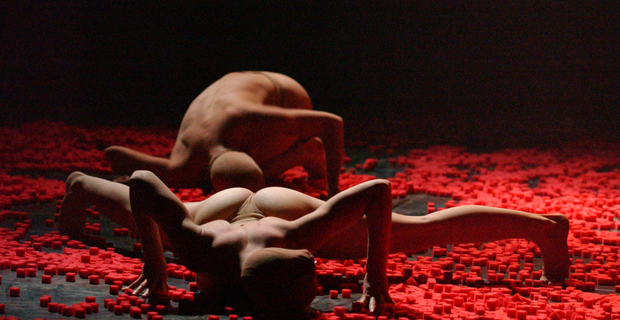For the past few years now, the Manipulate Festival has been a hub for some of the most innovative and fresh approaches to visual theatre in the UK. Produced by Puppet Animation Scotland, seldom do specialist arts festivals bring together such an eclectic mix of international puppetry, animation and visual performance. This year, the festival boosts its cinematic programme; artistic director Simon Hart spoke to us about the schedule.
“I think we do want to boost the amount of animation in the festival programme”, says Hart; “the interface between the different art forms [theatre and animation] is always really fascinating and we look to find productions that make use of those art forms as much as just presenting animation”. Hart attributes the popularity of animation to contemporary society and how “it’s such a big success with companies like Pixar and Disney; and at the same time there’s some really strong animation for adults, Manga for instance”.
Manipulate is known for having this adult tint in the work it produces, and Hart agrees that this year will be no different: “I think a lot of the work we see will be very challenging and dark – having said that the Chico & Rita film is a celebration of Cuban music from the late 50s – before Castro – the colour, brightness and music are very different from say Goodbye Mr. Christie which deconstructs the “English” country village life and dissects the tensions that can lurk beneath a seemingly bucolic environment”.
A fascinating piece this year which seems to fuse everything the festival hopes to achieve – live theatre, dark thematics, and interesting subject matter – is Luvos. Hart reflects on the show: “I think the company, Editta Braun, are not afraid to challenge their audiences with difficult themes and this piece looks at a post-apocalyptic world in which genetic modification has altered animals and plants to such an extent, though they still have life, they are totally unrecognisable. What we are seeing are bodies that create new shapes through their movements and I think the company wanted to explore how, as dancers, and as physical theatre practitioners, they could use the limitations of their own bodies. They could create new types of animals and plants in this dystopian world that they create. It’s a very powerful piece and it certainly made me reflect. At times it’s a very beautiful piece and I think it does move dance/physical theatre onto another level; once one enters the world there is a narrative arc but it is about one’s own reaction”.
This show seems to fit in nicely with the overall mission of visual theatre in the professional arena. Hart says that “what visual theatre does at its best is require each audience member to think for themselves. I think theatre based around dialogue becomes more about the actor in which the audience is instructed how to think, when to think and how to feel. With the sort of work we present at Manipulate, it’s an individual journey for audience members – people sitting side by side can have such diametrically different responses to the piece. It asks them to think in a slightly different way to dialogue-based theatre. You can implant thoughts that can stay with an audience member in a much more powerful way”.
As this is the first theatre festival of the calendar year in Edinburgh, it seems so detached from the Edinburgh Festival Fringe over six months away, yet Hart explains how “there’s a lot of this work [visual theatre] at the Fringe but it can get a bit swamped so I think it’s good to have a very strong, pure focus”. Expectations will be high for Manipulate as the festival produces such top-quality and pioneering work; it looks like this year will carry on the success.

